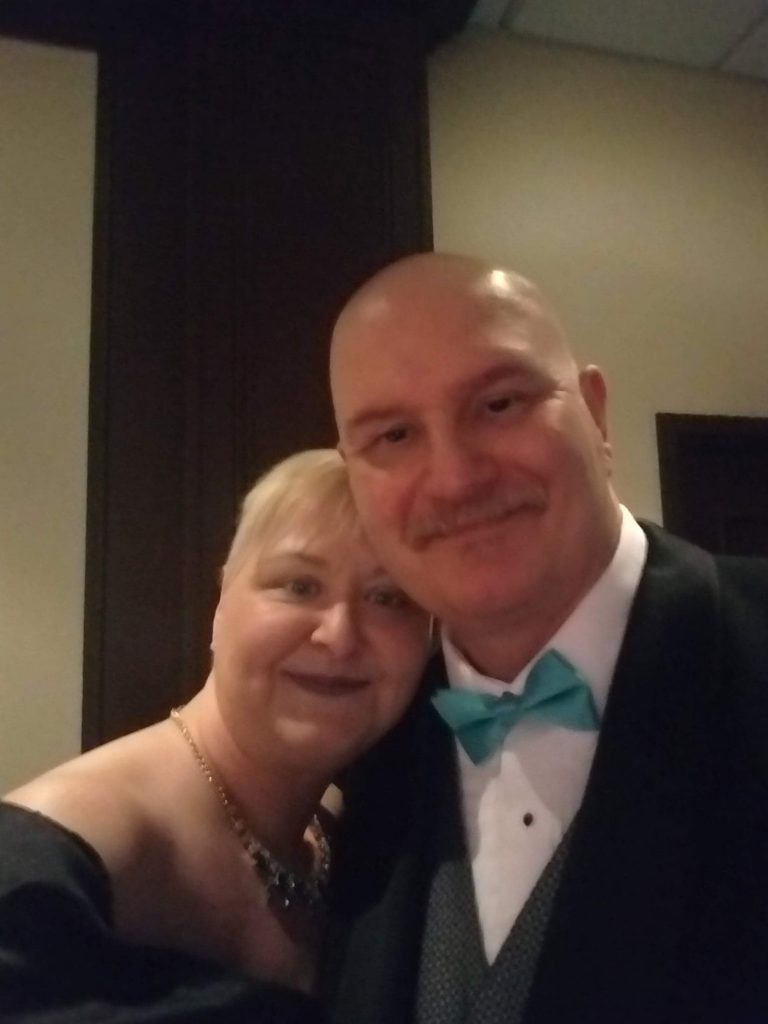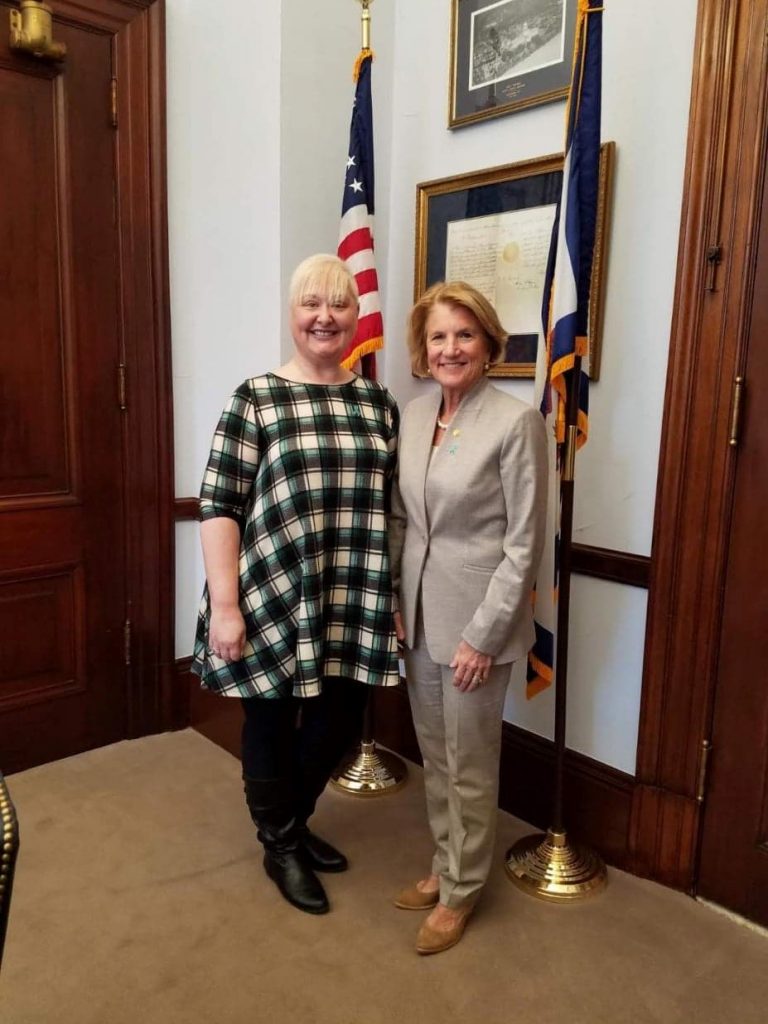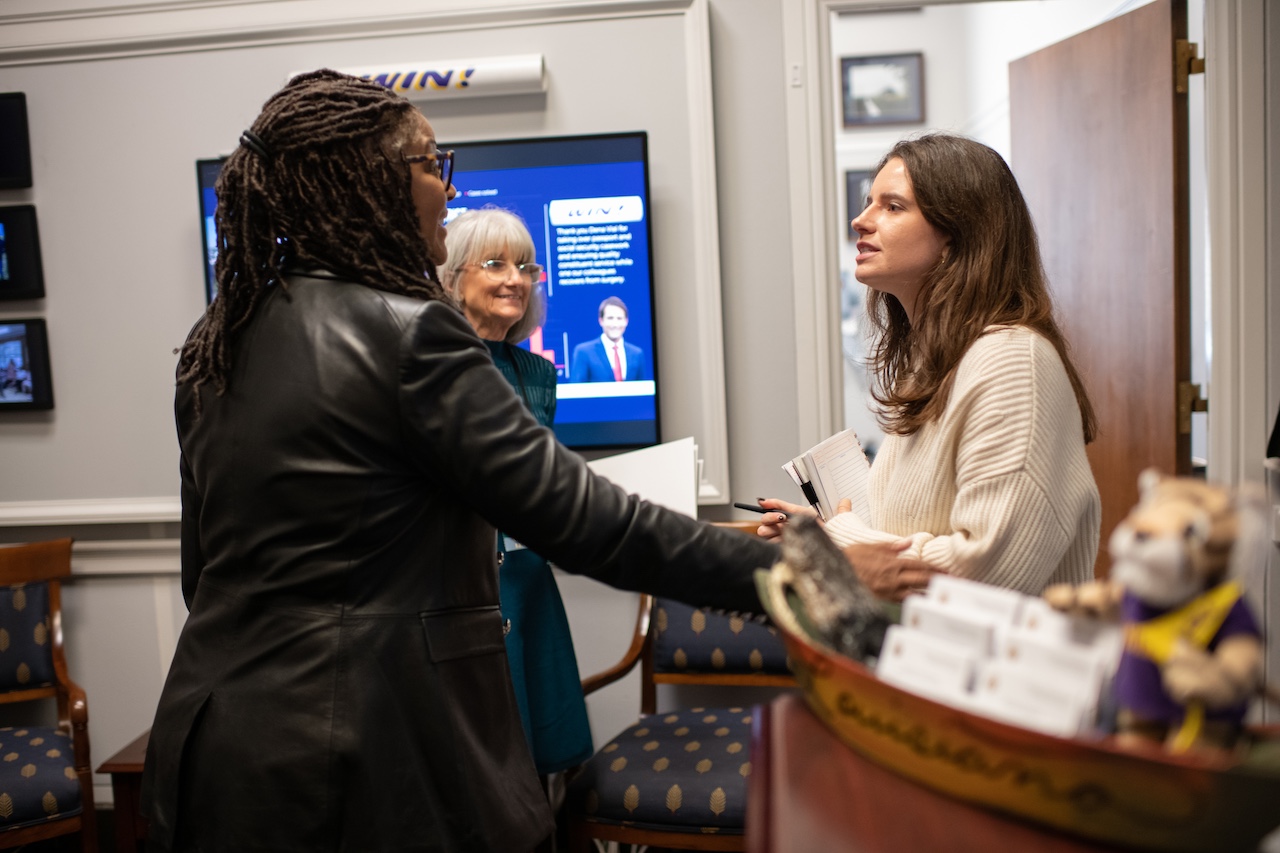“Don’t settle”

This simple two-word mantra is what guides Roxanne Bright – self-proclaimed dog mom, crafter, and 9-year ovarian cancer survivor from West Virginia who is on a mission to use her voice for good.
“Once you’ve heard the word ‘cancer’ tied to your name, you don’t want to settle for anything less than a cure, less than the best treatment,” Roxanne said. “You don’t want to settle for less than the best support system, or for those who aren’t going to be there for you when you’re waking up at 2am crying.”
Survivor’s guilt
Roxanne will be the first to admit that, relatively speaking, she’s had it easy, or easier than many with the disease. She was diagnosed at the age of 40 with stage 2c ovarian cancer and didn’t need radiation or chemo. “I went through some pretty big survivor’s guilt,” she said, referring to how she questioned why she was still here, why she didn’t have to go through what others did.
A year after her initial diagnosis and surgery, she felt like she was given this opportunity for a reason – “I felt like I need to do something to pay it forward” – and got involved with Relay for Life. But she wanted to do more, and to do something specifically for ovarian cancer. So when she learned about OCRA’s advocacy work in 2017, she jumped on it.
Finding her voice
Other than voting, Roxanne would not have described herself as a political person. But as she learned that there were “infinitely more nooks and crannies” to ovarian cancer than she ever could have imagined, she also realized that she has a voice that matters, and one that people will listen to.
She was completely blown away by the experience her first year as an Advocate Leader – from hearing the stories of other survivors, to learning about the work people have done to change their communities. During her first Advocacy Day in Washington, DC, Roxanne met with Senator Shelley Moore Capito.
“I told her my story and gave her the change in mortality rates in West Virginia,” Roxanne said. “Just the look on her face, she felt those numbers. She gets this.” And then Roxanne gave the Senator a teal ribbon pin to wear on her lapel.
Roxanne had been a “nervous wreck” going into that meeting, but when she noticed that the Senator continued to wear that teal pin in every photo throughout the rest of the day, Roxanne was overjoyed.
“I was like, ‘Okay, I’ve got this now. Who we going to next?’”

Speaking of next …
The advice Roxanne will give other Advocate Leaders is this: You will walk in and leave an information packet. But you need to focus on leaving an impression. And Roxanne certainly leaves an impression on the people she meets, and even those she hasn’t.
“Right now, if I walk into a store, people come up to me and say, ‘you’re the girl who had ovarian cancer.’” It’s a badge Roxanne wears proudly.
“I didn’t have anyone when I was in the hospital that could say ‘this is how your body may change, this is what you’re going to go through,’” Roxanne said. “If I can be that for someone else, I will absolutely, with every last breath that I have, continue to do that.”
Roxanne is inspired enough to want to start her own nonprofit. Last year, she raised awareness in her community about the signs and symptoms of the disease (“If there was something that didn’t move, we hung teal on it. Ads in the paper, signs, ribbons.”) This September, she is hoping to add a 5k race to raise money.
Her message of hope
Roxanne wants people to know that if they are diagnosed with ovarian cancer, there can be hope. There are people advocating every single day for government funding for better treatments and a cure. She wants people to know that their state representatives and senators who they see on TV are actually approachable people who are open to conversation from their constituents.
“You do have a voice more so than what you probably realize,” she said.
Roxanne is determined to use her voice, knowing that people rely on her to do so. “It has been a life-affirming experience. Short of OCRA kicking me out, I’m not going anywhere. This is my passion; this is what I want to be doing.”
“I’m just a little voice in a little town in West Virginia,” she said, “who is going to do everything I can to shake things up.”
Interested in being an OCRA Advocate Leader?
Learn more about the program!


